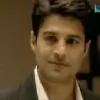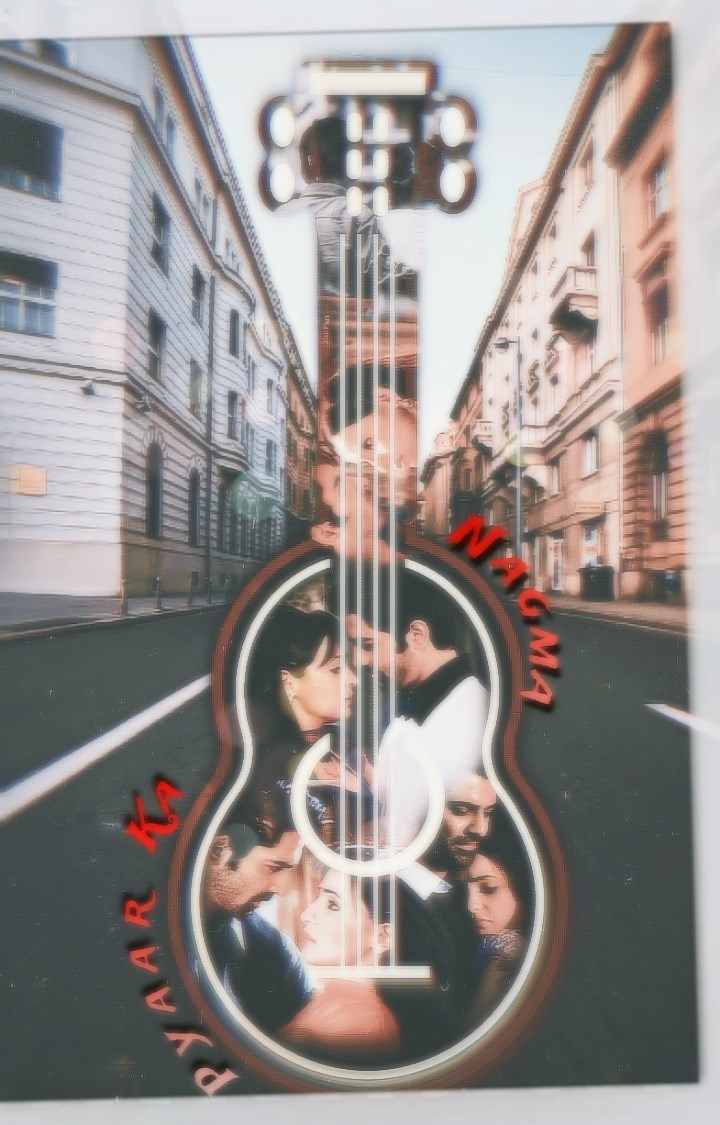Chapter 22:
"How did you even find that manifesto? I thought it was destroyed when he died in prison," Arnav asked Akash, his calmness returning full fold.
"A constable from prison was bribed to make several copies of the handwritten notes and smuggle it out. Your father was not allowed to meet anyone nor was the other people in jail who were associated with your father. Every interaction he had with the outside world was very minutely monitored. When things got tense, his manifesto was destroyed by the jailer. But there were a handful of copies made. My father smuggled one out when he was released from the prison and that is the copy I have." Akash said. Noting Arnav's expression, he added. "I am sorry you never got to know the man." Arnav shook his head slightly.
"My mother was devastated after his death. She couldn't visit him as frequently as she wanted to and never took me to prison to meet him. The last time she met him was couple of months before his death. After few years, she rarely spoke about the man she was once married to let alone his polity." Arnav said.
"I am sorry to hear that." Akash said sincerely.
"May I see the book?" Arnav asked quietly. Khushi and Akash looked at him but the darkness hid his emotions very well. Akash didn't respond for moments but finally shrugged.
"Let's get inside," Akash replied standing up and walking towards the house. Khushi stopped Arnav when he started walking.
"Are you going to tell him Arnav?" Khushi asked maintaining an eye contact. "It may not be-"
"I have to see it Khushi, you know that," Arnav said not allowing her to complete her words and strode briskly towards the house. Khushi followed him with same pace wordlessly.
"Here you go," Akash said handing over a photocopied variant of the book. "The original is safe somewhere else." He said looking at Khushi's raised eyebrow.
Arnav quickly turned the pages of the book, scanning through it as if he was searching something. Khushi looked on patiently while Akash looked surprised.
"Is this it?" Arnav asked handing the book to Khushi who started flipping through it from the last pages.
"What do you mean?" Akash asked looking from Arnav to Khushi.
"Where is the rest of the book?" Khushi asked somberly.
Akash was taken aback. "I don't understand Khushi. This is the photocopy of the manifesto I received from my father." He said looking from Khushi to Arnav. "What are you implying?" He added when he saw the look exchanged between his prisoners.
"This manifesto is incomplete," Khushi said dropping the stack of papers on table and sitting down in unfeminine manner on nearest chair. "Shyam Manohar Jha was a passionate man and his views evolved over the course of years. His writing always stayed in the boundaries of rationality and the practical perception of politics and social dynamics of the 70s. The section of manifesto you have here depicts that," she said.
"He started devolving during emergency era. The calmness he prided himself with was gone and was not an advocate of passive resistance policy anymore; the policy which talks about great men and women to be recognized in the community and they have to be given powers to govern the nation. The manifesto laid down the rules for the optimized operations of a society and the things that need to be done first to achieve that. He made plans to take this manifesto to a political consultant he knew and who was close aide to then prime minister. The gareebi hatao slogan boosted his confidence and made him recognize the potential the government portrayed to have. However things took a violent turn and the changes shook him completely. Once he was in prison for his articles, he started working on the second section of this manifesto which dropped the passivity of his original proposal and embraced a much...radical political revolution strategy to bring changes in the country." Arnav explained sitting next to Khushi.
"When you say there are two sections of the book you mean that there are two variants of the ideology?" Akash asked.
"In a way but it's not entirely right. The first section spoke about ethics and morality and the cost of compromising the two as a controlled collateral damage during the act of changing oneself, the community, the society and the country. It didn't promote violence but however instructed that violence may become a byproduct and sometimes even an unavoidable step of the advocated agenda and a necessary means to instill a larger idea but keeping the implementation as passive as possible. The second section however forwent the ethics part of it and didn't stop at making violence an absolute step to first induce fear and then control, and an absolve to every problem which came in way. Whatever went out of prison was mostly what was written in prison after his belief in reforms were squashed – the second part of the manifesto. Your father got a copy of the first part of manifesto Akash." Khushi said.
Akash was silent and didn't lift his head, his eyes fixated on a random spot on the floor. No lights were lit in the room and the darkness in the room ironically reflected what each one of them was feeling.
"It doesn't change anything," Akash said after a prolonged silence.
"No, it doesn't." Arnav replied softly. "But if there are people out there who sincerely believe in the other part of the manifesto…" He didn't finish. He didn't need to explain the debacle it would entail. "But am glad that there aren't people who would actually read that violent rant of an imprisoned man and try to implement," Arnav sighed and rubbed this forehead.
The look Akash gave him, however, spoke volumes. "No…" Khushi was the first to cotton on. "There can't be!" She said standing up and staring down Akash. "It's insane!" She added for good measure but looking at Akash's expression, she knew they were wrong.
"My father sincerely believed in what Shyam Manohar Jha envisioned and was very happy when he was given the manifesto before his death. After getting released from prison, he rounded up his old friends – comrades, he used to call them, and presented this manifesto as a proposal. Many of them hailed from families which fought for independence and were politically inclined since childhood. And it did help his cause when few of these wealthy friends decided to…invest." Akash explained. Taking a sip of liquid from glass, he continued.
"There was tension in this part of the country after operation blue star. Politics had become a messy business and people had become suddenly weary about free speech and open debates in public. It was at this point of time when a group picked up the other part of manifesto and decided to implement it." Akash said. Arnav and Khushi looked at each other tiredly. Silence reigned for next several moments as each one of them were consumed by the bombardment of information.
"What I don't understand is why such importance is given to rants of a man?" Arnav asked flatly. "I mean there must have been many such lectures, books and newspaper articles so why him? What is it that makes the manifesto so…attractive?"
"It's the perspective I think. And the fact that a journalist who became famous after an iconic image of him in shackles depicted the blasphemy on journalism, died in prison because of what he stood for, can be pretty motivating for many." Akash said, shrugging. "There are always people looking for bringing about a change in this country Arnav. What they needed was a push and there were many who recruited these men and women for the cause." He stopped and looked at Arnav. "So you knew about this?" He asked already feeling his question redundant.
"He was my father Akash. My mother didn't talk about him but she ensured that everything he ever wrote was boxed and neatly stored till the time I was ready to deal with them. My father kept a detailed journal which helped me understand his psyche from the days he was a student of journalism to the days leading his death." Arnav replied.
Before Akash could prod further, Khushi spoke. "But why now?" Khushi asked. "I mean its three decades since the inception and now you are enacting?"
"We have always been active Khushi. We have ensured that we aren't on everyone's radar and keep ourselves low. In this country, the age where you can be put in national map of politics is somewhere around forty. You cannot have a twenty five year old man walk into political arena and dictate terms. If you have a scenario like that, then the man will be actually a puppet in the hands of a much older staff." Akash explained.
"You set up a system." Arnav said. Akash nodded at that. "Instead of screaming 'off with their heads', you started at basics. You built your foundation by installing your own people in various government, military, research and intelligence organization whose primary loyalty lies with your group of people. It took three decades to build an entire system which can be manipulated and directed on your instructions and now that you have it, you are actually invincible." Arnav explained further.
"That's about it then," Akash said. "Now apply the same logic to the radical group but use a different perspective. Everyone wants same results but the method of execution is questionable or debatable."
"This reminds me of a paragraph from 'Through the looking glass'," Khushi said.
The moment Alice appeared, she was appealed to by all three to settle the question, and they repeated their arguments to her, though, as they all spoke at once, she found it very hard indeed to make out exactly what they said.
The executioner's argument was, that you couldn't cut off a head unless there was a body to cut it off from: that he had never had to do such a thing before, and he wasn't going to begin at his time of life. The King's argument was, that anything that had a head could be beheaded, and that you weren't to talk nonsense.
The Queen's argument was, that if something wasn't done about it in less than no time she'd have everybody executed, all round. (It was this last remark that had made the whole party look so grave and anxious.)
Akash chuckled without humor. "We can sit here and debate an entire night to decipher who is who in this analogy." He stood up. "But one thing is certain –Cheshire the cat is governance and Alice here represents you both; Alice, who always saw things from an outsider perspective."
"That's one way to look at it Akash," Khushi's voice was hard. "Alice may as well be a dream of the people in wonderland and they needed Alice to complete their existence."
Without turning, Akash threw the glass in his wall on to the nearest wall and walked out of the room in muted frustration and disappointment.

































44